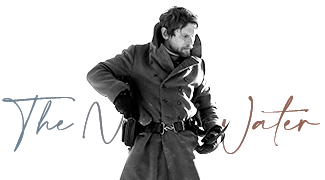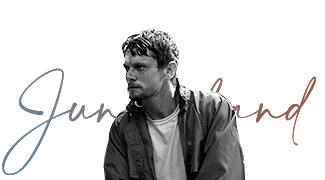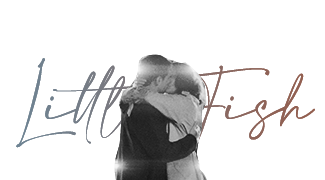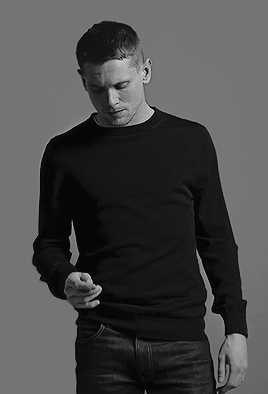Louis Zamperini knew a thing or two about waiting. The Olympic runner turned U.S. airman spent 47 deadly days living on a raft after a 1943 plane crash and subsequently survived two years as a Japanese prisoner of war. Still, when he sold Universal Pictures his life story in 1957, Zamperini couldn’t have known it would take more than 50 years for his tale to be told.
Come Christmas Day, however, the wait will be over. When Unbroken hits theaters, Zamperini’s story—originally optioned for a then up-and-coming Tony Curtis—will unfold on-screen for moviegoers around the globe. But beyond just exposing the world to the incredible life of Zamperini, it will give audiences a peek at the inner workings of another exceedingly impressive creature: director Angelina Jolie.
“I was looking for something to do and studying what was out there as a director,” says Jolie, perched poolside at a villa on the tiny Maltese island of Gozo. “Directing is very different from acting because it takes more than two years of your life, so it has to matter—really matter—in a different way.”
It wasn’t until Universal presented Jolie—whose directorial debut, In the Land of Blood and Honey, came and went quietly in 2011—with a Hail Mary list of available ideas gathering dust that she found what she was looking for.
“Every time you visit a studio, they give you the projects” that have been in limbo, she says, “and I saw these four sentences on Unbroken. I went home and I said to Brad, ‘I’m really curious about this film—it’s a triumph of the human spirit finding faith and forgiveness, and this man’s life seems so interesting.’ And Brad said, ‘Oh, honey, that project has been around forever.’ ”
Jolie never lost interest, however, and says she was halfway through Laura Hillenbrand’s 2010 Zamperini biography, Unbroken, when she knew she had to make the film.
“I fought for it for months,” Jolie says, “and it became less about wanting to do a film and more that I wanted to be close to be somebody like Louie. I felt I needed to go on that journey, that it would make me a better person if I could. I was begging not only to be the director—I was begging to have the opportunity to spend two years of my life focused on Louie Zamperini.”
According to Peter Cramer, Universal’s co-president of production, Jolie’s years on-screen and her gusto for the project won her the job. “I don’t think anybody would consider Angelina Jolie to be in the same league as a director just out of film school,” he says. “She’s obviously had a tremendous amount of experience in the movie business prior to becoming a director, all of which served her very well when she did decide to get behind the camera. We weren’t looking at her as a new director any more than people were when Clint Eastwood or Robert Redford first stepped behind the camera.”
So, in 2013 Jolie got her wish and set out for Australia for almost four months of filming. She also found her Louie.
“It was an enormous opportunity, beyond anything I had the audacity of expecting,” says Jack O’Connell, the 24-year-old English actor who landed the role. “I’ve been knocking on the door, waiting for someone to give me a chance to branch out, and Louie’s just perfect for that.”
Casting her leading man—a role that required an international search—was no easy feat. “The trick of casting Louie was that he had to be somebody that was really a man’s man,” Jolie says, “but also somebody who had a strong sense of family, a talented actor with a deep emotional well.”
O’Connell, a veteran of the British teen soap Skins and a series of rough-and-tumble independent films, did the trick. “Jack had this combination of fight, fire and spirit,” says Jolie. “As soon as I met him, I knew he was Louie.” She rounded out her cast with a host of other young actors, including Domhnall Gleeson, Garrett Hedlund and the Japanese singer Miyavi.
And while headlining the film was a huge boon for O’Connell, who’s since landed on so many rising-star lists his next gig could be at NASA, the work he was in for wasn’t going to be easy. To portray Zamperini as a brittle prisoner of war, O’Connell is said to have been on an 800-calorie-per-day diet, and to play him as an Olympic athlete, O’Connell had to train to become a world-class runner.
“It’s hard to highlight one particular point because the whole film was very fucking brutal,” O’Connell says. “The worst part of the shoot was the first half. We were doing the final POW sequences and there was a lot of coal involved, so everything was blackened, and there were days when you couldn’t engage outside of the scene because you had to preserve your energy. When I had to come back and play an Olympian, I stupidly thought it would be easier than playing a POW, but it wasn’t. That really stuck with me.”
The film shoot was emotionally fraught as well. Just before arriving in Australia, O’Connell—who as a teenager lost his father to pancreatic cancer—discovered a close friend of his had been diagnosed with liver cancer. Dealing with the off-screen stress gave O’Connell and Jolie—who publicly dealt with a preventative double mastectomy and who lost her own mother to ovarian cancer in 2007—the opportunity to deepen their personal relationship.
“I was feeling my worst, with the diet and the effects of preparation, and the only way I could possibly see him was if someone were to expedite the journey,” he recalls. “And Angie arranged for a helicopter. The same weekend, she organized some of my closest people around a table to have a meal with me. That exceeded the requirements of a director. It made me think how I had kicked the shit out of myself for two months before starting the film, but all I wanted to do was be on set and repay the favor. That isn’t a conventional actor-director relationship, so for her to make me feel like this was a two-way investment was so important.”
For Jolie—a mother of six and internationally crusading humanitarian—directing a group of young men in a film about war was an experience that tested her resolve.
“All the boys had to starve—even the extras—and we’d have days when there were 200 young men just standing in the heat,” Jolie recalls. “The mother in me wanted to stop and put everyone under a tent and give them water and just call it a day. The other side of me had to do my job and push it forward.”
As much as her actors were pressed to go beyond their limits, Jolie says directing Unbroken forced her to supersede her own. On one particular day, she had a large group of actors, some missing limbs, standing out in the sun, waiting for shadows to be cast perfectly before filming could begin. Jolie says her instinct was to give the boys a break, but a military adviser on the film offered a different solution.
“He made everybody come to attention and then made them start doing push-ups,” she says, her eyes unbelievingly wide even months later. “I thought, Oh no, but they did the push-ups and were tested and pressed and had purpose, and 10 minutes later they were all smiling.”
She adds, “I learned something about men that day. I learned that a challenge is good for everyone, so I was never again shy to push, knowing that we had a real purpose.”
The lessons Jolie learned on set didn’t stay there; her three sons benefitted as well. “In the back of my mind, I wanted to make a film that would help my boys become better men,” she says. “They know Louie’s story, so I’m able to say to them that it’s not bad to be full of fire—it’s what you choose to do with that fire.”
As for what Jolie’s chosen to do with her own fire, directing seems to be it. After years in front of the camera and a slew of awards—including an Oscar for 1999’s Girl, Interrupted—she says her focus from here on out will be on making films, not starring in them.
“I’ve never been comfortable as an actor; I’ve never loved being in front of the camera,” Jolie says. “I didn’t ever think I could direct, but I hope I’m able to have a career at it because I’m much happier.”
Is the plan to give up acting entirely?
She smiles. “Absolutely.”
But not yet. In fact, where we’re sitting is just a stone’s throw from the set of By the Sea, a period love story that Jolie wrote and is directing—and will star in, alongside her longtime partner and new husband, Brad Pitt. (It’s something of a family affair: The couple’s 13-year-old son, Maddox, is working on the film as a production assistant. “It’s so weird,” Jolie notes.)
“Compared to Unbroken, this film is a walk in the park,” Jolie says of the movie, which follows a 1970s American couple and their complicated marriage during a trip to France. “The tricky thing is directing myself and directing Brad. It’s hard, dramatic material, and we’re balancing.”
It’s the first time the couple, who met on the set of 2005’s Mr. & Mrs. Smith, have worked together since their August wedding. Not that things have changed much for them—“I think when it’s right, it feels the exact same [as before],” Jolie says of married life—but working side by side can take some getting used to.
“It’s a heavy film, and it’s not easy for us,” she says. “But even as you struggle through it, you’re in the trenches together and you don’t expect it to be easy. We’re challenging each other and that’s a really good thing.”
Challenges, of course, are part of any creative process. And while Unbroken came with its share of difficulties, perhaps none hit harder than the death, at 97 years old, of Zamperini in July.
“I was mortified when I heard of his passing,” O’Connell says. “I always had this fantasy of the two of us on the red carpet and I’d be in the background and it would be ‘The Louie Show.’ That’s not going to be the case now, but we’ve got to show the world this film in his honor. It is a tribute to a man who’s no longer with us.”
Jolie echoes the sentiment. “The most overwhelming part of making the film, for me, was bringing it to Louie in the hospital and watching him watch his life,” she says. “He gave us so much and he inspired us so much, but as sad as I am about losing him, I’m so grateful to have known him.”
Above all, Jolie says she’s honored to have been given the chance to tell Zamperini’s story and to offer him immortality, even if it’s only the celluloid kind.
“I still can’t believe I got to make this movie,” she says. “When it comes to being a director, it’s so new for me and I’m quite shy about it because I’m still learning. I’ll feel better when audiences start to see it. I think we’re on the right track, but I’m not breathing easy just yet.”
















